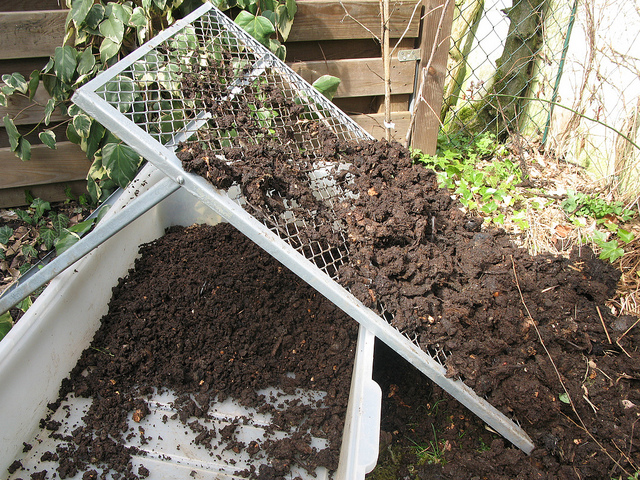Gardening is a constant process – there is not as much to do during colder months, but you still have to stay on top of your tools, gardening layout, seeds and much more.
Here are a few ideas of what you need to do to make sure your garden is ready to go as soon as it gets warmer.
Keep Composting
Composting slows down as the temperature plummets in winter, however it doesn’t mean that you should stop adding kitchen scraps to the heap. We’re very keen composters and are expanding the large compost bin to allow for a second heap to get started in winter which will be finished and ready to spread on the garden next fall.
Build New Beds
If you live in a more temperate area you can start making new beds for your vegetable garden now. Raised beds are easy to make and can be made relatively inexpensively if you have plenty of homemade compost. If you don’t have any compost, you can usually pick it up quite cheap from the city landfill. If you must buy the compost in bags, you can use other organic material or mulches to fill the bed to break down over winter before spring to make it cheaper.
Sort Your Seeds
Winter is a tempting time of year when those seed catalogues come in the mail. Take stock of what you already have and proper storage can help keep seeds viable for longer periods.
Clean and Sharpen Tools
Your garden tools should be properly maintained; sharpen cutting blades on pruning shears, secateurs and axes using a sharpening stone, clean dirt off spades, shovels and forks with hot soapy water then rinse and oil the metal parts to reduce rust. Wooden handles should also be oiled to reduce cracking and splitting of the wood
Mulch and Cover Crops
Frost fleece can be put over cold hard vegetables before the temperature drops too far to help keep those plants happy in winter. Frost fleece can be helpful for Brussels Sprouts, kale, winter cabbage and leeks if you live in milder climates.
Plenty of organic mulch on the vegetable beds like leaves, pine needles, straw and compost can help keep some hardy plants from freezing, allowing you to harvest in winter.
Making sure your garden is maintained year round is key to having a bountiful harvest year after year.
While you cannot control things like drought, you can make sure your garden area is well fertilized, your garden plans organized and your tools ready for when warmer weather hits – in fact, it is critical that you do if you want to reap the returns of your hard work!
To learn more gardening tips, please visit Mother Earth News.
Featured Image via Flickr
